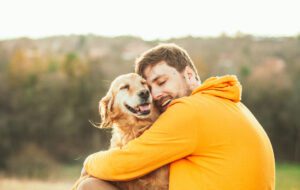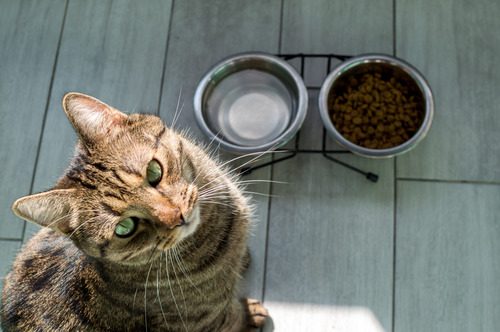Dog Separation Anxiety: How to Keep Your Pet Calm When You Leave in Raleigh, NC
Does your dog suffer from separation anxiety in Raleigh, NC? Do you often hear your dog crying as soon as you go out the door, or do you come home to find he has destroyed household items in his fear?
Separation anxiety is a very serious problem for many dogs. If your dog deals with this issue, there are some options you can try to help him feel better when you leave the house. Read through the list below to find out more.

Stay Calm
Most importantly, before you try anything else, be sure to remain calm yourself. If you’re nervous about leaving your dog behind or you take time to say a lengthy goodbye, your dog is going to pick up on this and get more nervous, too.
Tell your dog bye briefly, remain confident as you get ready, and stroll out the door without hesitation. The more confident and calm you remain, the better your dog will respond to you leaving. It may take some time for you to see results, but results will likely come if you keep up with this.
Practice
Practice leaving your dog for short bursts of time before you need to leave him all day. For example, you might try leaving him alone for just 15 or 20 minutes as you drive around the block or take a walk—just long enough for him to realize you’re gone, but not so long that he could panic too much.
Over time, you can work on leaving your dog for longer stretches. Be sure to give him some treats when you return if he has behaved while you were away!
Try Soothing Sounds
Some dog owners swear by leaving a TV or radio on for their dogs; some believe this doesn’t make any difference. Generally, a TV or radio may not help a dog settle down, since dogs are used to hearing those sounds throughout the day anyway. However, a white noise machine or other soothing sound machine may be able to help.
Play noises for your dog at a gentle volume, keeping in mind that your dog has better hearing than you do. Keep the white noise machine in your dog’s favorite room or near his crate, so he can feel more at ease while he is home alone.
Try a Thunder Shirt
Some dogs do well with separation anxiety when they wear a thunder shirt. This type of shirt provides deep pressure therapy and feels more or less like a gentle hug. Although these shirts are most commonly used for dogs with a fear of storms or fireworks, they can work well for separation anxiety too.
It’s not, however, a good idea to leave your dog in a thunder shirt for more than a few hours. This may not be a good solution for a full day of work, but it can help for short errands.
Provide Old Clothes or Blankets
One of the most tried and true methods of helping dogs deal with separation anxiety is to give them old blankets or clothes that smell like their favorite people. When your dog can smell you, even if the smell is just on clothing items, he will feel more comfortable knowing your presence isn’t too far away. This familiar scent will work wonders to help him calm down.
Be sure to give your dog items you don’t mind losing if he happens to chew them or urinate on them. Additionally, if he is prone to chewing up toys while unsupervised, this method may not be the best solution.
Talk to Your Vet
Finally, if all else fails, talk to your vet in Raleigh, NC for more suggestions on how to deal with your dog’s separation anxiety. Some dogs have such severe separation anxiety that they must be medicated with antidepressants or anti-anxiety medicines to help them cope.
Medication should never be the first option you try when dealing with separation anxiety in your dog. However, it may be the only course of action left if you have tried all other possibilities and still have a very nervous dog on your hands. Your vet can help you figure out the best solution from here.
Just because your dog deals with separation anxiety now, that doesn’t mean he has to for the rest of his life. When you take time to work with him and help him through this condition, he is likely to recover from it fully and learn how to behave properly while you’re away from home.
Remember to talk to your vet for more information if you have any further concerns or you need suggestions that are specific to your dog. The right course of action can help prevent your dog from having any more separation anxiety attacks in the future. Please feel free to contact our vet at (919)-488-5300 if you have any further questions or if your dog suffers from separation anxiety.
Recent Posts

Parasites in Dog’s Stool: Signs and Treatments

Why Is my Cat Not Drinking Water?

Common Causes of Eye Trauma in Dogs
About Us
At Companion Animal Hospital of Wakefield, our veterinarians in Raleigh, NC, provide better care for your pets. As members of your family, cats and dogs deserve the highest level of medicine with the most compassion. That’s why we put a strong emphasis on personalized care for your pet and client education for you. We believe that when we take the time to help you thoroughly understand your pet’s health, we’re able to make the best decisions for their care together.


